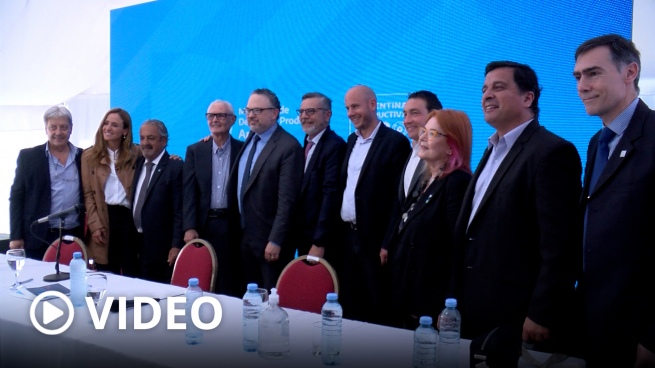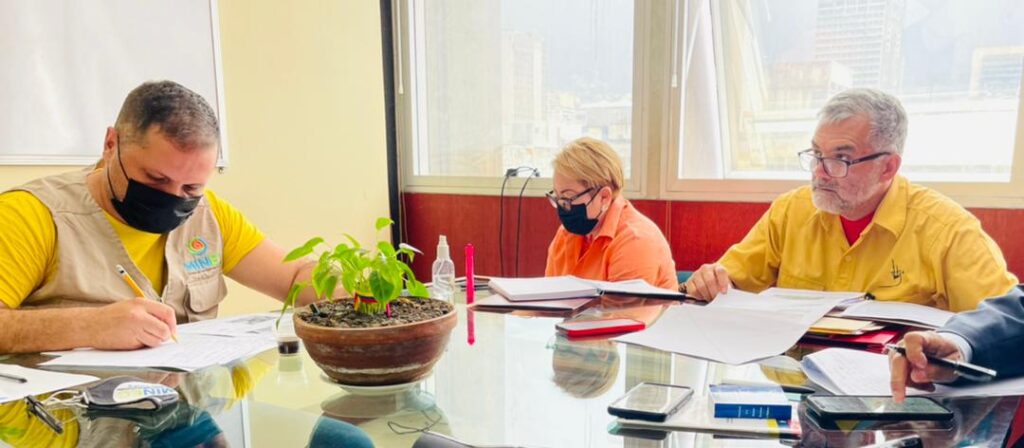The Minister of Productive Development, Matias Kulfaspresented this Tuesday the new Capital Goods Regime 4.0 which offers new incentives for the industry and projects to generate an additional US$150 million in annual exports, investments of more than US$2,000 million and the creation of more than 15,000 new jobs.
The new Regime -which will replace the one created under Decree 379/2001 and which was agreed upon with the Association of Metallurgical Industrialists (Adimra)- intends to generate increased incentives for research and development (R&D), for the adoption of 4.0 technologies and for exports, rewarding the most innovative companies.
The initiative was presented this Tuesday afternoon by Minister Kulfas in a ceremony held in the Buenos Aires party of Florencio Varela, at the Metallurgical Technological Center (Cetem), which belongs to Adimra, in which more than 200 businessmen from the metalworking industry participated. .
Kulfas said that the capital goods is a “strategic sector” because “it produces industries for industries” and transforms “knowledge into goods and services, with quality employment, and generating high added value and productive chains”.
In the most heated passage of his speech, the official highlighted that “Argentine industry is currently in the focus of national development and it does so because we have committed industrialists and workers and a government with a clear industrial policy”.
Kulfas estimated that with the new Regime -which will be published this Wednesday in the Official Gazette- in 2027 US$ 150 million additional annual exports will be generated and there will be investments of more than US$ 2,000 million and 15,000 new jobs.
The benefits may be used by companies from the second half of this year, after completing the corresponding prior registration.
The initiative, which aims to consolidate the national production of capital goods with greater technological innovation, will be valid for 5 years for participating companies, with revalidation every 2 years.
The entry requirements for interested firms will be: to have an industrial establishment located in Argentina, to be a manufacturer of capital goods, and to be an SME or to accredit a percentage of expenses in salaries in promoted activity.
Before more than 200 metalworking SMEs, we launched the Capital Goods 4.0 regime. It will promote incentives in research and development, improvement of processes and exports.
It will be the main promotion policy for one of the most important sectors of the productive structure. pic.twitter.com/l365FmHdgq
– Matías Kulfas (@KulfasM) April 26, 2022
Among the benefits are the reduction of employer contributions and income tax reduction bonuses, for R&D expenses, additional refunds for export, and for industrial certificates.
The meeting was also attended by the Secretaries of Industry, ariel schaleand Small and Medium Enterprises, William Merediz; the president of Adimra, Orlando Castani; the general secretary of the Metallurgical Workers’ Union (UOM), Abel Furlan; the deputy Victoria Tolosa Paz; and the mayor of Florencio Varela, Andrew Watson.
At the end of the act, Merediz told Télam that “we are convinced that Argentina can definitively stand up if the national industry -and SMEs in particular- can innovate, grow, develop their projects, become more technical, produce more and generate employment” .
For his part, the head of Adimra, Orlando Castellani, assured Télam that the good moment in the sector “is possible due to the public-private articulation in defense of the national industry” and asked to consolidate “an industrial policy that remains in the long term” .

In tune, the president of the Argentine Chamber of Electronic, Electromechanical and Lighting Industries (Cadieel), José Taborenea, told Télam that “it goes from something linear as it was a billing bonus in the old regime to incentives to invest more and better , take more labor and give it an export focus and technological innovation”.
Minister Kulfas also stated that one of the objectives is to consolidate the new Regime in a Capital Goods Law that grants greater consensus and predictability for many years.
Capital goods are machines and equipment used by the rest of the economy to produce all kinds of products. Among the main characteristics of the sector are its federal presence, the strong presence of the SME sector, its large export output, and the generation of strong production chains with many supplier and buyer companies.

The capital goods industry grew 48% between 2019 and 2021, has almost 100,000 direct jobs and explained in 2021 13% of the Industrial Gross Added Value with salaries 30% higher than the average salary, according to data provided by the productive portfolio .
The Capital Goods Regime 4.0 was launched within the framework of the Plan Argentina Productiva 2030, a recent initiative of the Ministry of Productive Development that aims to generate 2 million formal salaried jobs in the private sector in less than a decade, reduce 9 million the number of poor and create 100,000 formal companies, among other objectives.


















